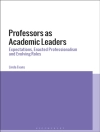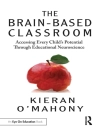The desire to understand people’s influence on ecosystems has inspired scientific studies and analyses of the stress individuals and communities place on the environment, human well-being, and the tradeoffs between them. As an emerging discipline, Structural Human Ecology is devoted to unlocking the dynamic links between population, environment, social organization, and technology. The new field offers cutting-edge research in risk analysis that can be used to evaluate environmental policies and thus help citizens and societies worldwide learn how to most effectively mitigate human impacts on the biosphere. The essays in this volume were presented by leading international scholars at a 2011 symposium honoring the late Dr. Eugene Rosa, then Boeing Distinguished Professor of Environmental Sociology at WSU.
Jadual kandungan
Table of Contents
Preface
Paul Ehrlich
Section I
Theoretical and Conceptual Issues
1. Introduction to Structural Human Ecology
Thomas Dietz and Andrew K. Jorgenson
2. Metatheoretical Foundations of Post-Normal Prediction
Richard York
3. Epistemology, Ontology, and the Practice of Structural Human Ecology
Thomas Dietz
Section II
Risk
4. Perspectives on Risks and Concerns with Respect to Climate Engineering
Ortwin Renn, Nadine Bratchatzek, Sylvia Hiller, and Dirk Scheer
5. Opportunities and Dilemmas in Managing Risk and Uncertainty
Roger E. Kasperson
6. Design Principles for Governing Risks from Emerging Technologies
Paul C. Stern
Section III
Structural Human Ecology of Nations
7. Energy and Electricity in Industrial Nations
Allan Mazur
8. Population, Affluence, and Greenhouse Gas Emissions: The Continuing Significance of Structural Human Ecology and the Utility of STIRPAT
Andrew K. Jorgenson
9. The Implications of Structural Human Ecology for Environmental Concern’s Global Reach
Sandra T. Marquart-Pyatt
Section IV
Directions for the Future
10. Context Matters: Eugene A. Rosa’s Lessons for Structural Human Ecology
Thomas Dietz
Contributors
Index
Mengenai Pengarang
Andrew K. Jorgenson, Ph.D., conducts comparative-international research on the political-economy and human ecology of environmental change and public health. He is professor and director of graduate studies in sociology at the University of Utah, as well as a faculty affiliate of the Environmental and Sustainability Studies Program and an affiliate investigator for the Institute for Policy and International Affairs. His research has been published in dozens of scholarly journals.












